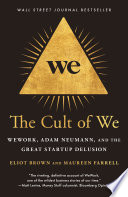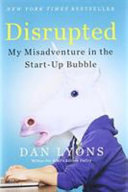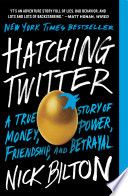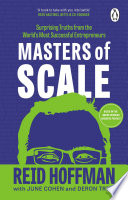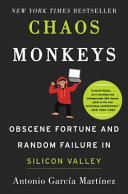Summary
The Cult of We provides a comprehensive examination of WeWork, a company that epitomized the startup culture of the 2010s, characterized by rapid growth, charismatic leadership, and a focus on community. Co-founded by Adam Neumann and Miguel McKelvey, WeWork emerged as a pioneer in the co-working space, transforming how people viewed office environments. The book details the company's rise, driven by Neumann's vision of creating a global community of entrepreneurs and innovators who could collaborate and thrive together. WeWork's unique selling proposition appealed to a generation seeking flexibility and a sense of belonging in their workspaces.
However, as the narrative unfolds, it becomes clear that this meteoric rise was built on shaky foundations. The book highlights the cult-like culture that developed within WeWork, where employees were expected to adopt the company's vision as their own, leading to an environment that stifled dissent and critical thinking. This culture, while initially a source of strength, ultimately contributed to the company's downfall, as it created an echo chamber that allowed poor decision-making to go unchecked.
The role of investors is another critical aspect explored in the book. Venture capitalists, drawn by Neumann's charisma and the promise of the shared economy, invested billions into WeWork, enabling its rapid expansion. However, this influx of capital also created immense pressure to scale at all costs, leading to unsustainable growth practices. The book raises important questions about the responsibilities of investors and the need for due diligence in the tech industry.
A significant theme in The Cult of We is the illusion of value that WeWork presented to the market. Despite its peak valuation of nearly $47 billion, the company was operating at a loss, and many experts questioned the sustainability of its business model. The narrative illustrates how the tech industry often values companies based on hype and potential rather than actual financial performance, creating a disconnect that can lead to disastrous consequences.
Leadership and governance at WeWork are critically analyzed, with a focus on Neumann's authoritarian tendencies. The lack of a robust governance structure allowed Neumann to operate without sufficient checks and balances, raising concerns about the concentration of power in startups. The book emphasizes the importance of sound governance practices to ensure accountability and prevent the pitfalls of charismatic leadership.
The impact of WeWork's rise and fall on the co-working industry is also examined. While WeWork popularized the concept of shared office spaces, its collapse forced other companies to reevaluate their business models and focus on sustainability. The narrative highlights how the industry adapted in response to WeWork's mistakes, emphasizing the need for community-driven approaches that prioritize long-term viability.
In conclusion, The Cult of We serves as a cautionary tale about the dangers of unchecked ambition, the importance of sustainable business practices, and the need for strong governance in leadership. It offers valuable lessons for entrepreneurs, investors, and anyone interested in the dynamics of the startup world, reminding readers that success is not just about growth but also about building a resilient and responsible business.
